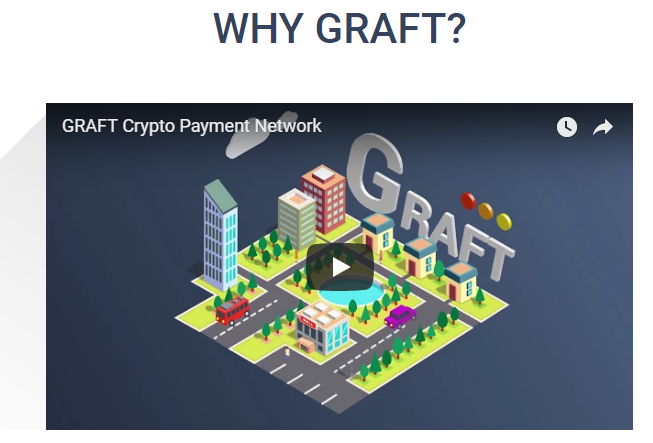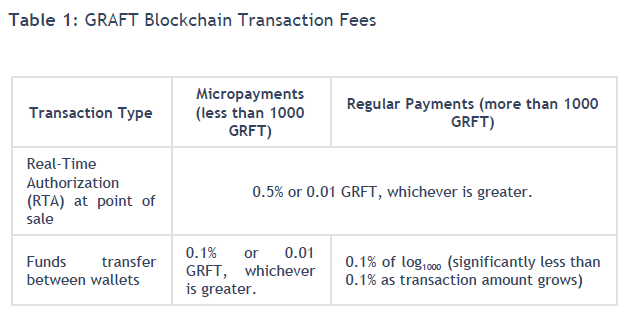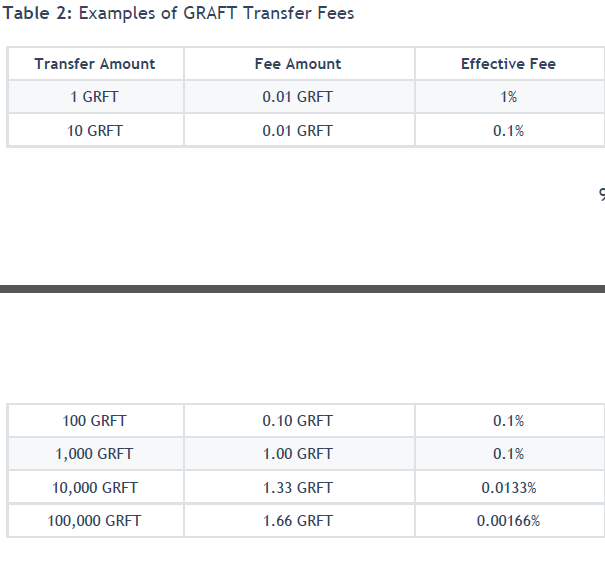GRAFT is a retail-oriented payment blockchain and a decentralized alternative payment processing network that brings cryptocurrency to the point of sale and beyond.
Terminology
GRAFT
Global Real-time Authorizations and Funds Transfers, which is a decentralized global open platform for processing real-time authorizations and settlements of merchant payments and fund transfers using untraceable blockchain, decentralized API, and an open community of service brokers that support a variety of payment and payout methods, including cryptocurrencies, cryptographic tokens, and traditional credit cards and bank transfers.
A plant that has a twig or bud from another plant attached to it so they are joined and grow together.[4] Grafting is an advanced technique that botanists, farmers, gardeners, and hobbyists use to add living tissue from one plant to another. This technique allows for the best traits of different plants to come together to create something better and more valuable than their original parts.
Service Broker
A GRAFT protocol extension hosted on a supernode or a group of supernodes and hosted by the supernode operator. Service brokers implement special additional features that cannot be automatically executed by a fully decentralized network and/or requires special regulation framework such as PCI DSS[6] or NIST 800-63-3.[7] Examples of service brokers are a credit card payment acceptance broker and a bank payout transfer broker.
Merchant Token
Predefined smart contract that allows creating a private token that belongs to its owner.
VChain
Virtual decentralized independent “merchant account” where merchants can create merchant tokens and set up authorization and payout rules and triggers that will have an affect on transactions for that specific merchant.
GRAFT Wallet
“Lite" desktop, mobile, and browser extension apps that allow making payments and fund transfers using GRAFT tokens, other major cryptocurrencies, cryptographic tokens, or credit/debit cards by calling GRAFT DAPI.
Micropayments: How Do I Pay with Crypto for a Cup of Coffee?
Another problem currently experienced by Bitcoin is its inability to handle micro payments due to high transaction fees.[10] GRAFT resolves this problem by introducing a unique approach to transaction fees.
GRAFT Transaction Fees
In GRAFT’s ecosystem, the payer does not pay fees. All fees are borne by the receiver (merchant or payee). GRAFT makes micro payments accessible by setting very low (as compared to credit cards[11] and online payment processors,[12] cryptocurrencies,[13] and other cryptographic tokens) fees, but without a fixed fee component (Table 1).
The logarithmic fee schedule provides for an incentive for processing less transactions with small amounts (i.e., combining multiple transactions together whenever possible) while keeping low transaction fees for large transaction amounts (Table 2).
GRAFT Point of Sale
“Lite” desktop and mobile apps that allow merchants to accept payments in GRAFT tokens, Bitcoins, altcoins, or credit/debit cards; issuing and redeeming gift certificates, loyalty reward points, and store credits; configure settlement payouts in GRAFT tokens, Bitcoins, altcoins, or local fiat currencies.
Transaction Fees
Why is it necessary to have a transaction fee in the first place? After all, there is no commercial enterprise behind the blockchain, so why would users need to pay fees, who collects them, and how much should the collector charge?
https://steemit.com/crypto/@originalworks/680-steem-sponsored-writing-contest-graft
graft2018



Sponsored Writing Contest!
This post has been submitted for the @OriginalWorks You can also follow @contestbot to be notified of future contests!
my tweet link
https://t.co/KkslGKYW8B
my tweet link
https://t.co/KkslGKYW8B